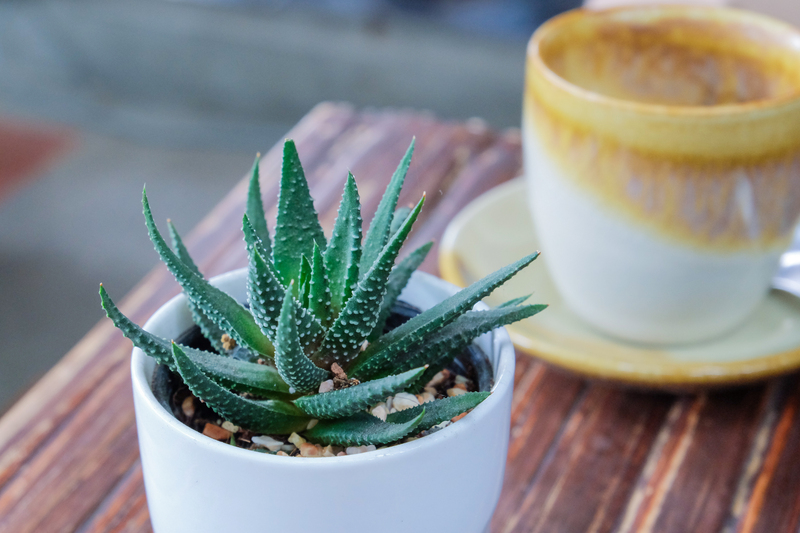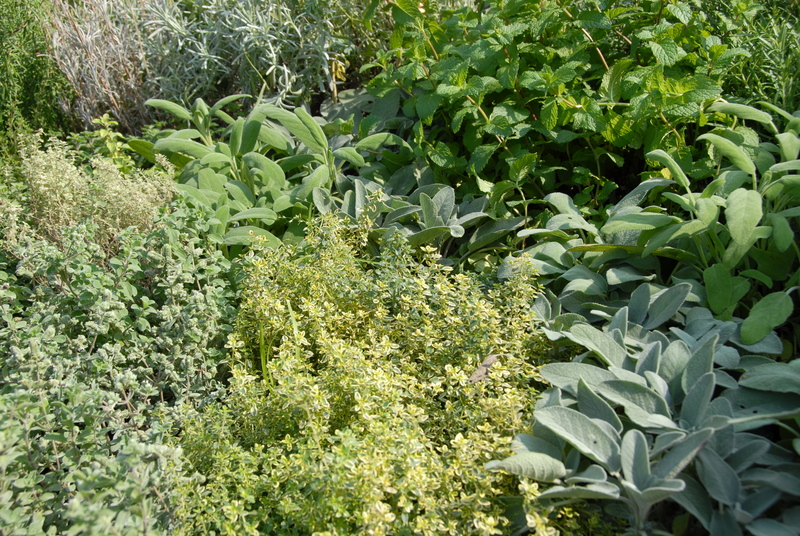Green Alchemy: Converting Organic Waste to Soil Fertility
Posted on 29/08/2025
Green Alchemy: Converting Organic Waste to Soil Fertility
Discover the secrets and science behind transforming waste into a resource with our comprehensive guide to turning organic waste into fertile soil. Dive deep into Green Alchemy and unlock the benefits for your garden, wallet, and the planet.
Introduction to Green Alchemy
Green Alchemy is the transformative practice of converting organic waste into rich, fertile soil. This age-old process, now more relevant than ever, empowers households, farms, and communities to reduce landfill usage, mitigate greenhouse gas emissions, and create environmentally sustainable cycles of growth.
In the modern age, the thoughtful management of organic waste isn't just a hobby--it's a necessity. By understanding the science and methods behind recycling kitchen waste, yard trimmings, and biodegradable materials into living, breathing soil amendments, we tap into nature's own system for renewal.

What is Organic Waste?
Organic waste refers to any material that originates from living organisms and is biodegradable. This includes:
- Food scraps from fruits, vegetables, grains, and more
- Grass clippings and leaves from lawns and gardens
- Wood chips, paper towels, and coffee grounds
- Eggshells, nutshells, and other kitchen byproducts
When these materials are landfilled, they decompose without oxygen, often releasing methane gas, a potent greenhouse gas. Through the process of composting--the main method of Green Alchemy--these wastes can instead feed the soil, supporting healthy plant growth and a robust ecological cycle.
The Science Behind Soil Fertility
Soil fertility is fundamentally about nutrient availability and microbial life. Healthy, fertile soil contains:
- Macronutrients like nitrogen (N), phosphorus (P), and potassium (K)
- Micronutrients such as zinc, copper, and manganese
- Organic matter, which improves soil structure and water retention
- Living organisms, including bacteria, fungi, and earthworms
Organic waste is nature's goldmine of these vital elements. Transforming organic waste into compost not only recycles these nutrients but also helps in building soil structure, fostering microbial biodiversity, and maintaining moisture levels. The process is akin to alchemy--changing the valueless into the invaluable.
Benefits of Converting Organic Waste to Soil Fertility
Environmental Advantages
- Reduces landfill waste: Nearly 30% of what we throw away could be composted instead.
- Decreases greenhouse gases: Composting prevents methane emissions from anaerobic decomposition in landfills.
- Enhances carbon sequestration: Healthy soils store carbon, helping to mitigate climate change.
Economic and Practical Benefits
- Saves money: Compost reduces the need for chemical fertilizers and garden amendments.
- Improves plant health and yields: Nutrient-rich soil grows stronger, more vibrant, and more productive plants.
- Supports local food systems: Home and community composting creates closed-loop food systems.
Soil and Ecosystem Health
- Boosts soil biodiversity: Compost teems with beneficial microbes and earthworms.
- Improves soil structure: Compost loosens clay soils and helps sandy soils retain water.
- Suppresses plant disease: Healthy soil built by compost naturally reduces plant pathogens.
Methods of Converting Organic Waste
Green Alchemy can be practiced in several ways, from simple backyard piles to sophisticated municipal-scale operations. Here are the most common and effective methods:
1. Traditional Composting
Traditional composting involves creating a pile or bin where organic waste decomposes over weeks or months. The right balance between "greens" (nitrogen-rich materials, e.g., food scraps, grass) and "browns" (carbon-rich materials, e.g., leaves, cardboard) ensures proper decomposition.
- Steps:
- Gather a mix of green and brown organic waste.
- Layer them in a bin or designated area.
- Keep the pile moist but not wet--like a wrung-out sponge.
- Turn or aerate the pile regularly to provide oxygen.
- In 2-6 months, enjoy finished compost for your garden!
2. Vermicomposting (Worm Composting)
Vermicomposting utilizes special worms, most commonly red wigglers, to break down organic waste quickly and efficiently.
- Benefits:
- Fast decomposition
- Produces nutrient-rich worm castings ("black gold")
- Suitable for indoor or apartment use
- Best for: Small spaces, apartments, classrooms, and those who want speedier results.
*Note: Avoid adding meats, dairy, and oily foods to keep worms healthy.
3. Bokashi Fermentation
In contrast to aerobic composting, Bokashi is an anaerobic fermentation process that converts kitchen scraps (including meat and dairy) into pre-compost using specialized microbes and a sealed bucket. The resulting material can be safely buried in the garden to complete decomposition.
- Advantages:
- Handles all food waste, including proteins and fats
- Minimal odor and pest issues
- Quick (around 2-3 weeks)
4. Sheet Composting and Mulching
Also known as lasagna gardening, sheet composting involves layering organic materials directly onto garden beds. Over time, the layers break down, improving soil structure and fertility in situ.
- Simple method for recycling leaves, grass clippings, and kitchen scraps directly in the garden.
- Suppresses weeds and conserves soil moisture.
The Green Alchemy Process: Step-by-Step
Step 1: Collect and Prepare Organic Waste
Begin by collecting food scraps (no plastic, metal, or glass) in a kitchen bin. Yard waste, coffee grounds, shredded newspaper, and even natural fibers can be included. Chop larger materials to speed up breakdown.
Step 2: Balance Your Pile
- Green/nitrogen materials: Fresh grass, fruit and veggie scraps, coffee grounds
- Brown/carbon materials: Dry leaves, sawdust, cardboard, paper
Aim for an approximate ratio of 2-3 parts brown to 1 part green for best results.
Step 3: Maintain Moisture and Aeration
- Check regularly--too wet? Add more browns. Too dry? Add some greens, or a splash of water.
- Turn your compost every week or two for oxygen and to mix materials.
Step 4: Harvest and Apply Your Homemade Fertility
Finished compost is dark, crumbly, and earthy-smelling. Sift or screen as desired, and use it:
- Mix into garden beds before planting
- Side-dress around existing plants as a natural fertilizer
- Sprinkle on lawns for healthy turf
- Brew into compost tea for foliar feeding
Step 5: Repeat and Expand
The beauty of Green Alchemy is that it's a continuous cycle--one that grows with your household or community's needs.
Optimizing the Magic: Tips for the Best Soil Fertility
- Shred and chop: Smaller pieces decompose faster.
- Monitor temperature: A "hot" pile (130-160?F/55-70?C) breaks down waste quickly and kills weed seeds.
- Avoid composting disease-prone plants or glossy paper: These can cause problems in finished compost.
- Location matters: Place your compost bin over soil for good drainage and access by helpful earthworms.
- Be patient: Composting is a dance with nature--it rewards consistency and observation.
Common Challenges and Solutions
- Odor Issues: Usually caused by excess greens or poor aeration. Add browns and turn the pile.
- Pests: Avoid adding meat, dairy, or oily foods. Cover fresh scraps with dry material.
- Pile too dry: Increase greens or lightly water the pile.
- Slow decomposition: Shred materials, ensure balance, and turn more regularly.
Applications of Organic Soil Fertility
Organic soil amendments produced via Green Alchemy can revolutionize yards, gardens, and farms:
- Urban Gardening: Utilize compost for raised beds, container plants, and vertical gardens.
- Community Agriculture: Reduce costs and increase yields for food banks and urban farms.
- Land Restoration: Restore poor, compacted, or eroded soils to health.
- Landscaping: Beautiful lawns and flowerbeds with fewer chemicals.
The Environmental Impact: A Global Perspective
If every household and municipality embraced the conversion of organic waste to soil fertility, we could significantly reduce landfill volumes and cut global greenhouse gas emissions. In some countries, composting initiatives are reducing waste management costs while improving food security and soil health. Green Alchemy is a scalable solution in the fight against climate change.
How to Start Your Green Alchemy Journey
- Assess your waste stream: Start saving fruit/veggie scraps, coffee grounds, cardboard, leaves, and more.
- Choose a method: Backyard composting, vermicomposting, or bokashi--pick what fits your lifestyle.
- Educate your household: Get everyone involved in separating and collecting compostables.
- Start small, scale up: Even a simple countertop bin or worm bin is a step toward greener gardening.
- Join community initiatives: Many regions now offer compost collection, workshops, and community garden compost hubs.
Conclusion: A Greener Future from Waste
The practice of turning organic waste into soil fertility is both ancient wisdom and modern necessity. Green Alchemy closes the nutrient loop, transforms "trash" into treasure, and nurtures healthier gardens, farms, and communities. Whether you're a farmer, a gardener, or an eco-conscious urban dweller, your kitchen scraps and yard clippings are the seeds of tomorrow's abundance.
Embrace Green Alchemy--your soil, your wallet, and the planet will thank you.

Frequently Asked Questions about Soil Fertility from Organic Waste
- Q: Can meat or dairy be composted?
A: In traditional composting, avoid meats and dairies, as they can attract pests and slow the process. Bokashi systems can handle most food scraps, including meats and dairy, by pre-processing before soil application. - Q: How long does it take for organic waste to become usable compost?
A: Depending on method and conditions, compost can mature in 1-6 months. Hot piles and vermicomposting are quickest. - Q: Does composting organic waste reduce landfill methane?
A: Absolutely! Composting is an aerobic process and avoids the methane emissions of landfill decomposition. - Q: Can compost be used for all plants and crops?
A: Finished compost enhances nearly all garden and landscape plants, but avoid using very fresh compost for delicate seedlings.
Additional Resources
Start your Green Alchemy journey today--waste less, grow more, and nurture the world beneath your feet!
Latest Posts
Affordable Green Retreats: 5 Low Maintenance Garden Tips
Step-by-Step Guide to Weatherproofing Your Garden
An Introduction to Container Gardening

